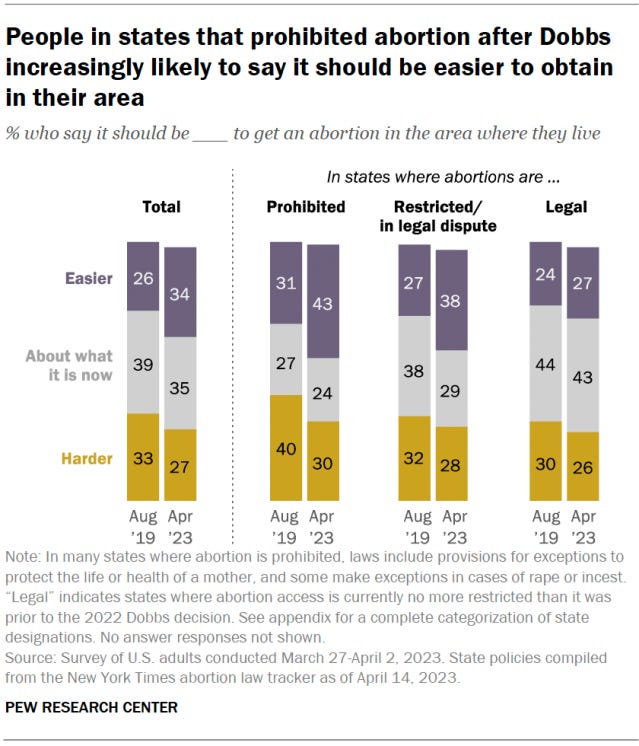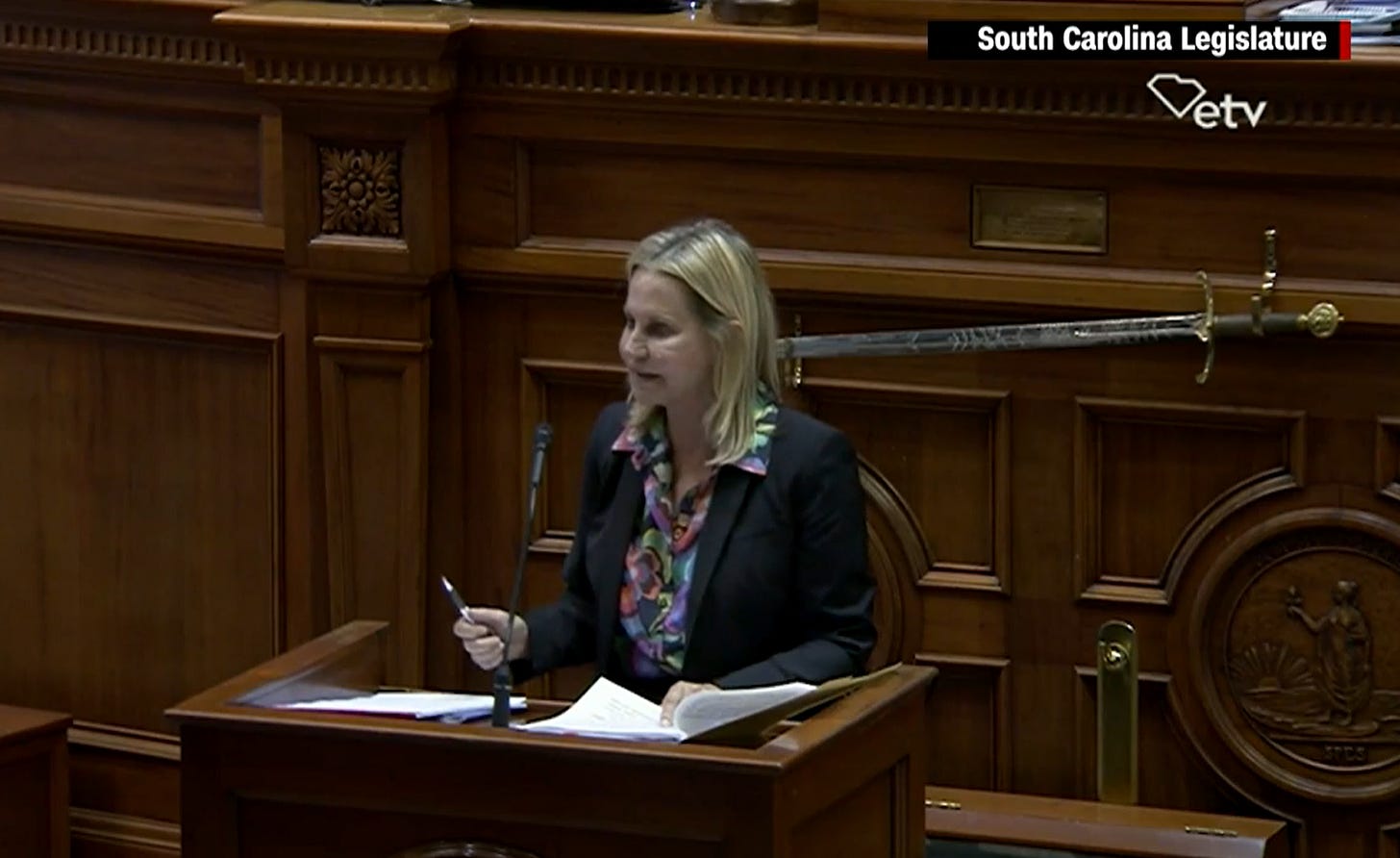This Week in Abortion
A collection of good reads, legal updates, and legislative tracking on abortion.
Welcome back to your weekly roundup of good reads, legal updates, and legislative tracking on abortion. We are taking a break from features this week. Instead, we hope you'll get some coffee and click through the good reads. It’s a great collection this week.
Good Reads
NPR covered a really compelling report of how conflicting abortion laws are playing out in hospitals in Oklahoma. Spoiler: not great.
From the Report: Not a single hospital in Oklahoma appeared to be able to articulate clear, consistent policies for emergency obstetric care that supported their clinicians’ ability to make decisions based solely on their clinical judgment and pregnant patients’ stated preferences and needs.
The NYTimes featured a timely piece on the apparent GOP strategy to keep abortion off ballots.
Some good news…the latest Pew Poll shows that, in the 13 states where abortion is prohibited, more people would like to see access increase compared to 2019. We interpret this as people starting to realize that things have gone too far. But, (we know, sorry, there is always a but) 54% of people in those states still indicated that abortion access should be the same or even stricter. Always work to do.
The Wall Street Journal dipped its toe in the space and featured GOP presidential candidate Nikki Haley “getting real” about abortion. Aka she sidestepped true responses but held an event at the Susan B. Anthony Pro-Life America’s offices, speaking her actions louder than her words.
According to a medical industry mag, between 2012 and June of 2022 the American College of Obstetricians and Gynecologists’ PAC gave over $1.2 million out of $3.3 million to anti-access politicians.
Events of the Week
Tennessee repealed a law from 1883 (yes, that is not a typo) that allowed the state to arrest people for attempting to procure a “criminal miscarriage.” According to advocates, the law had been used at least twice in the last decade. Legislators also modified their current total ban to allow for limited exceptions for the pregnant person’s life. We’ve been covering the saga in TN. It’s a huge disappointment from where they started, with real, flexible exemptions, to a narrow list of possibilities that don’t include rape and incest and that gives doctors a little more, but not enough, professional discretion.
Kansas legislators overrode the governor’s veto, reinstating two anti-access bills. One is a bill that will require medical care of babies “born alive,” another is a requirement that clinicians provide information about abortion reversal and signs get posted anywhere mifepristone is dispensed. The Senate failed to override a third veto that would have made liability insurance more expensive for abortion care providers.
Vermont passed a bill protecting medicated abortion, basically saying they will allow pharmacists to sell it even if the FDA revokes approval and the main drug companies are banned from distributing it. They are looking to Canada for supply.
Many things are NOT moving through legislatures, likely leaving current laws in place until 2024. Highlights:
Nebraska failed to pass a ban on abortions after cardiac activity is detected, leaving its post-20-week ban in place.
South Carolina failed to pass a bill banning most abortions, leaving it’s post-22-week ban in place.
Texas looks like it wants in on the great monument race. The TX Senate approved a bill that allows for planning and private funding efforts to start so that a replica of the “Life Monument” can be installed on public grounds. Arkansas and Tennessee already have laws on the books but haven’t installed anything yet.
Minnesota passed a law protecting reproductive healthcare records from being shared with other states.
Legal Updates
There weren’t too many legal updates this week. But if you need a helping of courtroom drama, Mary Tuma has a great article about the “wrongful death” case in Texas and the activist lawyer behind it. This is the case in which two women are facing jail time for helping their friend get an abortion. Tuma says, “Central to Mitchell’s controversial and “dangerous” ideology is his belief that old, unenforced laws never really die.”



